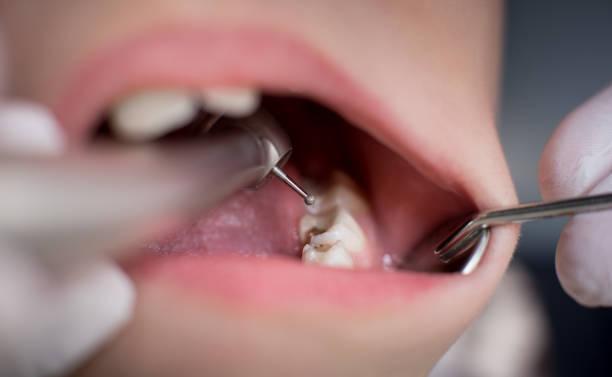Cavities are one of the most common dental problems that affect people of all ages. They are also known as dental caries or tooth decay and can cause significant pain, discomfort, and damage to teeth if left untreated.

What are Cavities?
Cavities are holes or openings that develop on the surface of a tooth. They are caused by the erosion of the enamel, which is the hard, outer layer of the tooth. When the enamel is weakened, bacteria can enter the tooth and begin to break down the underlying layers of dentin and pulp. This process can lead to infection, inflammation, and damage to the nerve inside the tooth.
Causes of Cavities

Cavities are primarily caused by bacteria in the mouth. These bacteria produce acids that can erode the enamel of the teeth, which can lead to cavities. Poor oral hygiene, a diet high in sugar and carbohydrates, and a lack of fluoride can all increase the risk of developing cavities. Certain medications, dry mouth, and conditions that reduce saliva production can also increase the risk of developing cavities.
Symptoms of Cavities
The symptoms of cavities can vary depending on the severity and location of the cavity. Common symptoms include:
- Toothache or sensitivity to hot, cold, or sweet foods and drinks
- Visible holes or pits in the teeth
- Dark spots or stains on the teeth
- Bad breath
- Swelling or tenderness in the gums
How to prevent Cavities?

The best way to prevent cavities is to practice good oral hygiene. This includes: brushing your teeth at least twice a day with fluoride toothpaste, flossing daily, and visiting your dentist for regular check-ups and cleanings. Limiting your intake of sugary and acidic foods and drinks can also help reduce the risk of developing cavities. Additionally, using mouthwash or fluoride treatments can help strengthen and protect the enamel of the teeth.
Treating Cavities
The treatment for cavities depends on the severity and location of the cavity. If caught early, a cavity can often be treated with a simple filling. However, if the cavity has progressed to the point where it has reached the nerve of the tooth, a root canal may be necessary. In some cases, the tooth may need to be extracted if the damage is too extensive to repair.
Home remedies to cure Cavities
Cavities are a common dental problem that occurs when the hard outer layer of the teeth, called enamel, is damaged by acid produced by bacteria in the mouth. While the most effective way to treat a cavity is to have it filled by a dentist, there are some home remedies that can help to alleviate the symptoms of a cavity and prevent further decay.
1. Oil pulling: This is an ancient Ayurvedic practice that involves swishing a tablespoon of oil (such as coconut, sesame, or sunflower oil) in your mouth for 15-20 minutes before spitting it out. It is believed that this practice can help to reduce bacteria in the mouth and promote oral health.2. Saltwater rinse: A saltwater rinse can help to reduce inflammation and pain caused by a cavity. Mix a teaspoon of salt in a glass of warm water and swish it around your mouth for a few minutes before spitting it out.
3. Clove oil: Clove oil has natural antibacterial and analgesic properties that can help to reduce pain and inflammation caused by a cavity. Apply a few drops of clove oil to a cotton ball and place it on the affected tooth for a few minutes.
4. Garlic: Garlic has natural antibacterial properties that can help to kill the bacteria that cause cavities. Chew a raw garlic clove for a few minutes or crush it and apply it directly to the affected tooth.
5. Tea tree oil: Tea tree oil has natural antiseptic properties that can help to reduce bacteria in the mouth. Mix a few drops of tea tree oil with a carrier oil (such as coconut oil) and apply it to the affected tooth.
It is important to note that while these home remedies may provide temporary relief from the symptoms of a cavity, they are not a substitute for proper dental care. If you suspect that you have a cavity, it is important to see a dentist as soon as possible to prevent further decay and damage to your teeth.
Reference
Author: Nikita Vishnoi BCA












